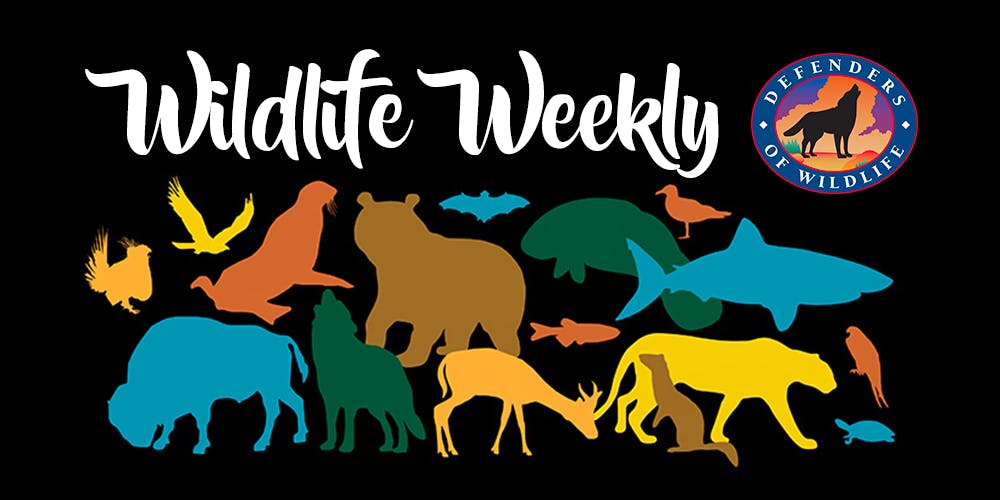Your weekly roundup of wildlife news from across the country
WildSights:
[slideshow_deploy id=’34145′]
Wild stories from the Week:
Did you hear? There’s a new wolf pack in northern California called the Lassen pack! Learn more about what this exciting development means for wolf recovery in the Pacific Northwest: http://dfnd.us/2v9AY5A
A man dreams of using his drone to help better manage PA’s precious #wildlife: http://dfnd.us/2uerh9E
As evidence mounts that we are entering a sixth mass extinction event, it is more important than ever to protect endangered species that are losing numbers and habitat at unprecedented rates: http://dfnd.us/2v86qBk
Fate of Pacific Northwest orcas tied to having enough Columbia River salmon: http://dfnd.us/2u50T0O
Now that we have evidence that suggests seismic surveys cause significant mortality to zooplankton populations, it’s a good time to ask: What other wildlife does seismic testing negatively affect? http://dfnd.us/2uIMlSB
Our Defenders in Action:
In Texas:

Last week Defenders of Wildlife had a booth at the LULAC 88th Annual Convention and Exposition in San Antonio, Texas. The League of United Latin American Citizens, or LULAC as it is known, is the oldest and largest Latino civil rights organization in the country, founded in 1929 by a group of local Mexican American organizations in Texas. They have chapters across the country and had almost 15,000 people in attendance throughout the week. The conference panels and expo are free and open to the public, so we had the chance to talk with not only LULAC members but also Texans who drove from across the state to be a part of this annual event. We are grateful to LULAC for the opportunity to participate in this special community event.
In Peru:

Defenders of Wildlife co-hosted three two-day workshops in Peru to build capacity for environmental, marine, and custom agencies through developing shark fin identification techniques and discussing current events in trade. Around 30 participants attended each workshop. The first day of each of the three workshops was discussion-based, with members of different organizations, marine experts and agencies providing presentations and leading discussions on current topics in the international shark trade including CITES permits for shark, mantas and mobulas recently listed. Presentations included lessons on the FAO developed iSharkfin software and debates about the morphological differences between species of sharks. The second day of each workshop was provided to develop the knowledge just learned and visit ports where shark landings were occurring and to develop identification techniques by handling actual shark fins and bodies. All of the participants contributed to three engaging and stimulating workshops, where everyone walked away with a better understanding of and appreciation for the CITES permitting process and the identification of sharks and shark fins.
In Florida:

Mike Adams, Senior Florida Representative is doing his part to connect the youth in his community with nature and wildlife conservation through his field excursions and William Bartram reenactments. This summer Mike is involved with Ravine Gardens State Park in Palatka, Florida strategically located along the St. Johns River in Northeast Florida. He provides a natural history presentation portraying 1774 colonial naturalist William Bartram, artist, scientist, author and historian, who explored this region and the Southeast colonies. He presents information about wildlife that inhabited the Florida territory in the 1700s including manatees, gopher tortoises, Red Wolfs, whooping cranes, and even bison. This is a wonderful community outreach platform and opportunity to impress upon our youth the importance of natural resource conservation for future generations.





Follow Defenders of Wildlife
facebook bluesky twitter instagram youtube tiktok threads linkedin